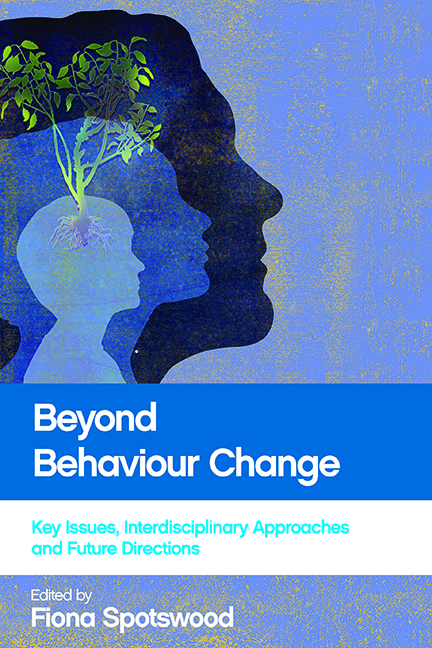eleven - Values and public expressions of concern
Published online by Cambridge University Press: 01 September 2022
Summary
Introduction
This chapter grapples with the evidence for the importance of values in motivating people to express social or environmental concern – whether at the supermarket, the ballot box, or on the streets. This evidence base points to possible new approaches to strengthening such concern. It highlights the importance of appealing to ‘intrinsic’ values in the course of communicating about specific causes (for example, biodiversity loss or disability rights). It also underscores the importance of promoting these values more widely in society – often by working tangentially on issues that may at first seem unrelated to these causes. As such, this chapter presents an approach to strengthening public concern about social and environmental challenges that is an alternative, both ideologically and theoretically, to many of those currently in favour (such as behavioural economics – see Chapter Six) that sidestep changing people's engagement or relationship with important issues in favour of merely changing their behaviour. Organisations working for positive social or environmental change would do well to incorporate an understanding of values into their work.
Public demand for change
Collectively, we confront some very significant challenges, from climate change to human rights abuses, from inequality to malnutrition, from biodiversity loss to various forms of prejudice. It is the contention of this chapter that addressing these challenges will require far stronger public expressions of concern – expressed through the choices that people make about the goods and services that they buy, their use of resources in their private lives, and whether, and how, they engage politically.
Addressing these challenges will also require significant changes in government and business. It can be seen that these changes themselves require stronger public expressions of concern. In the absence of this, government and business find themselves hopelessly constrained in what they are able to achieve.
Of course, some governments prove themselves to be both electable and socially and environmentally progressive. Some businesses turn a profit while achieving significant steps towards social and environmental responsibility. Such change is important, but it is patently not proportionate to the scale of the challenges that we confront, and, as Chapter Nine demonstrates, relying on business for the societal changes we require is a strategy rife with limitations.
- Type
- Chapter
- Information
- Beyond Behaviour ChangeKey Issues, Interdisciplinary Approaches and Future Directions, pp. 217 - 236Publisher: Bristol University PressPrint publication year: 2016



